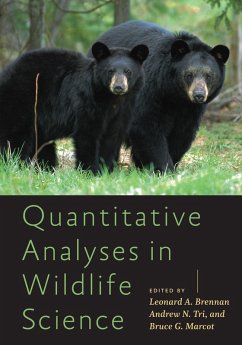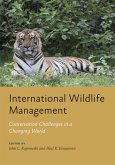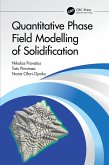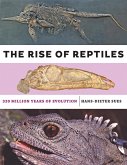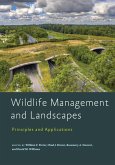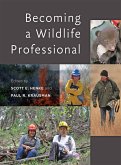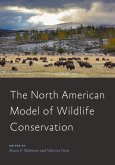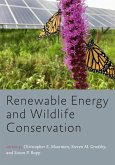An authoritative guide to quantitative methods that will help wildlife scientists improve analysis and decision-making.Over the past fifty years, wildlife science has become increasingly quantitative. But to wildlife scientists, many of whom have not been formally trained as biometricians, computer modelers, or mathematicians, the wide array of available techniques for analyzing wildlife populations and habitats can be overwhelming. This practical book aims to help students and professionals alike understand how to use quantitative methods to inform their work in the field. Covering the most widely used contemporary approaches to the analysis of wildlife populations and habitats, Quantitative Analyses in Wildlife Science is divided into five broad areas:* general statistical methods* demographic estimation* dynamic process modeling* analysis of spatially based data on animals and resources* numerical methodsAddressing a variety of topics, from population estimation and growth trend predictions to the study of migration patterns, this book presents fresh data on such pressing issues as sustainable take, control of invasives, and species reintroduction. Authored by leading researchers in wildlife science, each chapter considers the structure of data in relation to a particular analytical technique, as well as the structure of variation in those data. Providing conceptual and quantitative overviews of modern analytical methods, the techniques covered in this book also apply to conservation research and wildlife policy. Whether a quick refresher or a comprehensive introduction is called for, Quantitative Analyses in Wildlife Science is an indispensable addition to every wildlife professional's bookshelf. Contributors: William M. Block, Leonard A. Brennan, Stephen T. Buckland, Christopher C. Chizinski, Evan C. Cooch, Raymond J. Davis, Stephen J. DeMaso, Randy W. DeYoung, Jane Elith, Joseph J. Fontane, Julie A. Heinrichs, Mevin B. Hooten, Julianna M. A. Jenkins, Zachary S. Laden, Damon B. Lesmeister, Daniel Linden, Jeffrey J. Lusk, Bruce G. Marcot, David L. Miller, Michael L. Morrison, Eric Rexstad, Jamie S. Sanderlin, Joseph P. Sands, Erica F. Stuber, Chris Sutherland, Andrew N. Tri, David B. Wester, Gary C. White, Christopher K. Williams, Damon L. Williford
Dieser Download kann aus rechtlichen Gründen nur mit Rechnungsadresse in A, B, BG, CY, CZ, D, DK, EW, E, FIN, F, GR, HR, H, IRL, I, LT, L, LR, M, NL, PL, P, R, S, SLO, SK ausgeliefert werden.

